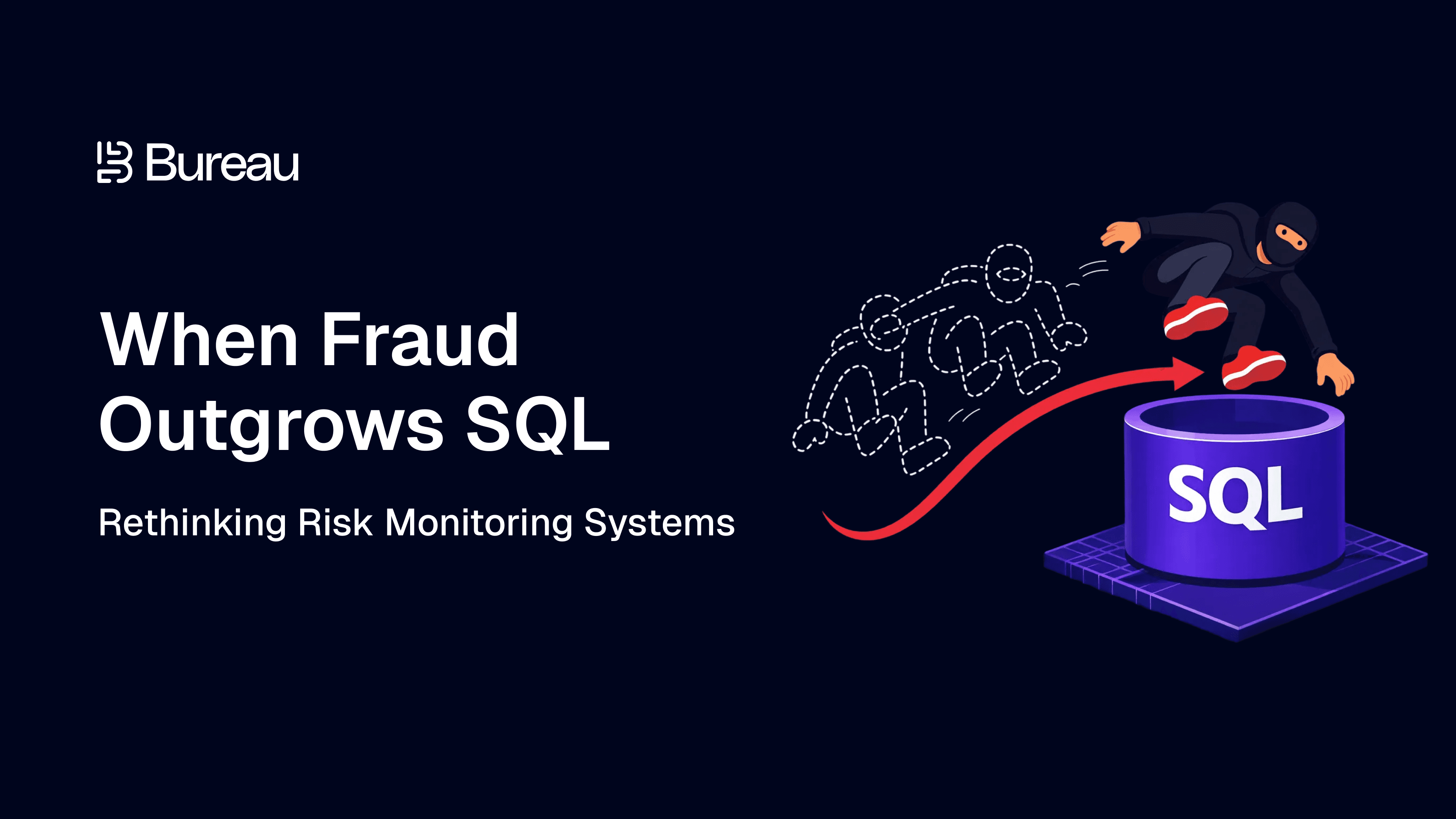Jun 1, 2025
Uncovering Systemic Issues Plaguing India's Competitive Exams
Uncovering Systemic Issues Plaguing India's Competitive Exams
Uncovering Systemic Issues Plaguing India's Competitive Exams
In the competitive landscape of India's education sector, various forms of examination fraud persist that easily exploit vulnerabilities in the system. In the past month, alleged paper leaks and manipulated marks in national-level exams have put the futures of 3.5 million aspirants at risk. Understanding these methods is crucial to comprehending the issue's magnitude and devising effective solutions.
Author
Team Bureau




TABLE OF CONTENTS
See Less
India’s examination system is in chaos. To be clear, cheating and paper leaks have long plagued exams. But now, major exams managed by the state-run National Testing Agency (NTA) appear compromised. In the past month, alleged paper leaks and manipulated marks in these exams have put the futures of 3.5 million aspirants at risk. Just last week, three other public exams conducted by the government were either canceled or postponed, affecting another 1.3 million candidates.
How is examination fraud perpetrated?
In a survey in 2021 by Learning Spiral, a big provider of online-exam software, 73% of university students admitted to cheating in online tests. In the competitive landscape of India's education sector, various forms of examination fraud persist that easily exploit vulnerabilities in the system.
Understanding these methods is crucial to comprehending the issue's magnitude and devising effective solutions. Here are some common ways fraud is perpetrated:
1. ID Document Tampering:
Description: Fraudsters manipulate identity documents to misrepresent their identity during examinations, bypassing identity verification protocols.
Impact: This undermines the credibility of the examination process, allowing ineligible candidates to gain admission or certification.
2. Certificate Tampering:
Description: Falsification of academic certificates and qualifications to gain eligibility for examinations they would not otherwise qualify for legitimately.
Impact: It devalues genuine qualifications and puts undeserving candidates ahead of deserving ones.
3. Impersonation and Password Sharing:
Offline Exams:
Impersonation: Individuals impersonate others to take exams on their behalf, utilizing forged identity documents or exploiting lax supervision.
Impact: This compromises the fairness of the exam, as it allows individuals who did not prepare to succeed unfairly.
Online Exams:
Password Sharing: Sharing of login credentials among candidates to allow unauthorized individuals to access and take exams on behalf of others.
Impact: It breaches exam security protocols and can skew results, undermining the integrity of online examinations.
3. Access/Authentication Exploitation:
Description: Exploiting weaknesses in online exam platforms' access and authentication procedures to gain unauthorized access or manipulate results.
Impact: It threatens the reliability of the examination process, leading to potential grade inflation or deflation.
4. Data Privacy/Data Leaks:
Description: Breaches in data privacy lead to leaks of sensitive information such as exam questions or candidate identities, facilitating fraudulent activities.
Impact: Compromises the integrity of the exam and can give an unfair advantage to those who access leaked information.
The diversity of these methods shows how deeply flawed the existing fraud prevention methods are and how challenging it can be for educational institutions to safeguard the integrity of examinations.
Related read: Social engineering: Exploring the "human" angle of fraud
Government initiatives and stakeholder action
But some legislative strides and technological advancements have been made to bolster exam integrity. Here’s a look at some of the initiatives that combat examination fraud in India:
1. Anti-Cheating Bill:
Description: Recently passed by the Indian Parliament in 2024, this legislation aims to strengthen penalties for those involved in exam malpractices and enhance regulatory measures to curb fraud.
Impact: It serves as a deterrent to potential fraudsters and provides a legal framework for prosecuting offenders.
2. APAAR ID:
Description: The introduction of an Aadhaar-like APAAR ID (Automated Permanent Academic Account Registry) seeks to add a layer of digital identity verification during examinations,
Impact: Enhances the accuracy of candidate identification, reducing instances of impersonation and ID tampering.
3. AI-Based CCTV Surveillance:
Description: Implementing AI-driven CCTV surveillance in examination centers enhances monitoring capabilities, reducing instances of impersonation and unauthorised behaviour during exams.
Impact: Provides real-time monitoring and automated detection of suspicious activities, improving overall exam security.
While these governmental measures represent necessary steps forward, combating examination fraud requires concerted efforts from all stakeholders. Educational institutions must adopt stringent protocols and leverage technology to safeguard exam processes. Technology companies are responsible for innovating secure assessment solutions and preventing data breaches.
Collective action from policymakers, students, institutions, ed-tech companies, and technology firms is essential to foster a culture of integrity and fairness in examinations.
Bureau’s capabilities in combating examination fraud
At Bureau, we are committed to providing cutting-edge solutions to effectively tackle examination fraud. Our comprehensive suite of technologies ensures robust security measures and integrity in the examination process. Here are some of the key capabilities we offer:
Document OCR (Optical Character Recognition):
Description: Our advanced OCR technology accurately reads and verifies identity documents, ensuring the authenticity of candidate information and preventing document tampering.
Impact: Enhances the accuracy and reliability of identity verification, preventing unauthorized access to exams.
Identity Verification:
Description: Bureau’s identity verification system cross-references candidate information with official databases, ensuring that only legitimate candidates can access the examination.
Impact: Strengthens security by confirming the true identity of exam takers, reducing impersonation risks.
Device Fingerprinting:
Description: By analyzing the unique characteristics of a candidate's device, our device fingerprinting technology detects and prevents unauthorized devices from accessing the examination platform, enhancing security against impersonation and fraud.
Impact: Ensures that only authorized devices are used during exams, preventing cheating through unauthorized equipment.
Behavioural Biometrics:
Description: Our behavioral biometrics solution monitors and analyses candidates' behavioral patterns, such as typing speed and movements, to detect anomalies and prevent fraudulent activities during online exams.
Impact: Provides continuous monitoring and detection of suspicious behavior, enhancing the integrity of online examinations.
Liveness Check:
Description: To ensure that the person taking the exam is present and not an imposter, our liveness check technology can verify the candidate's presence throughout the examination process.
Impact: Prevents impersonation by confirming the continuous presence of the legitimate candidate, ensuring exam integrity.
By leveraging these advanced technologies, Bureau provides a secure and seamless examination experience, safeguarding the integrity of assessments and building trust among all stakeholders.
Schedule a free consultation with us.
Conclusion: Comprehensive solutions for exam integrity
Examination fraud is a multifaceted challenge that requires a holistic approach, addressing vulnerabilities before, during, and after the exam. Bureau is at the forefront of this battle, providing a suite of technologies designed to safeguard every stage of the examination process.
Pre-Exam Integrity:some text
Document OCR and Identity Verification: By ensuring that all identity documents are authentic and accurately verified, we prevent fraudulent candidates from gaining access to the examination in the first place. This preemptive measure sets a strong foundation for a secure examination environment.
During the Exam:some text
Device Fingerprinting and Behavioural Biometrics: Only authorized devices can access the examination platform, while our behavioral biometrics continually monitor the candidate's behavior for any signs of fraudulent activity.
Liveness Check: Ensures continuous monitoring throughout the examination period.
Post-Exam Security:some text
Data Privacy and Secure Access: After the examination, our secure access and authentication solutions can ensure that exam results and candidate data remain protected from unauthorized access and data breaches. This secures the entire lifecycle of the examination process, from preparation to result declaration.
Our integrated solutions can not only enhance the security of the examination process but also build trust among candidates, educational institutions, and policymakers. Together, we can create a fair and transparent examination environment that upholds the highest standards of integrity and credibility.
India’s examination system is in chaos. To be clear, cheating and paper leaks have long plagued exams. But now, major exams managed by the state-run National Testing Agency (NTA) appear compromised. In the past month, alleged paper leaks and manipulated marks in these exams have put the futures of 3.5 million aspirants at risk. Just last week, three other public exams conducted by the government were either canceled or postponed, affecting another 1.3 million candidates.
How is examination fraud perpetrated?
In a survey in 2021 by Learning Spiral, a big provider of online-exam software, 73% of university students admitted to cheating in online tests. In the competitive landscape of India's education sector, various forms of examination fraud persist that easily exploit vulnerabilities in the system.
Understanding these methods is crucial to comprehending the issue's magnitude and devising effective solutions. Here are some common ways fraud is perpetrated:
1. ID Document Tampering:
Description: Fraudsters manipulate identity documents to misrepresent their identity during examinations, bypassing identity verification protocols.
Impact: This undermines the credibility of the examination process, allowing ineligible candidates to gain admission or certification.
2. Certificate Tampering:
Description: Falsification of academic certificates and qualifications to gain eligibility for examinations they would not otherwise qualify for legitimately.
Impact: It devalues genuine qualifications and puts undeserving candidates ahead of deserving ones.
3. Impersonation and Password Sharing:
Offline Exams:
Impersonation: Individuals impersonate others to take exams on their behalf, utilizing forged identity documents or exploiting lax supervision.
Impact: This compromises the fairness of the exam, as it allows individuals who did not prepare to succeed unfairly.
Online Exams:
Password Sharing: Sharing of login credentials among candidates to allow unauthorized individuals to access and take exams on behalf of others.
Impact: It breaches exam security protocols and can skew results, undermining the integrity of online examinations.
3. Access/Authentication Exploitation:
Description: Exploiting weaknesses in online exam platforms' access and authentication procedures to gain unauthorized access or manipulate results.
Impact: It threatens the reliability of the examination process, leading to potential grade inflation or deflation.
4. Data Privacy/Data Leaks:
Description: Breaches in data privacy lead to leaks of sensitive information such as exam questions or candidate identities, facilitating fraudulent activities.
Impact: Compromises the integrity of the exam and can give an unfair advantage to those who access leaked information.
The diversity of these methods shows how deeply flawed the existing fraud prevention methods are and how challenging it can be for educational institutions to safeguard the integrity of examinations.
Related read: Social engineering: Exploring the "human" angle of fraud
Government initiatives and stakeholder action
But some legislative strides and technological advancements have been made to bolster exam integrity. Here’s a look at some of the initiatives that combat examination fraud in India:
1. Anti-Cheating Bill:
Description: Recently passed by the Indian Parliament in 2024, this legislation aims to strengthen penalties for those involved in exam malpractices and enhance regulatory measures to curb fraud.
Impact: It serves as a deterrent to potential fraudsters and provides a legal framework for prosecuting offenders.
2. APAAR ID:
Description: The introduction of an Aadhaar-like APAAR ID (Automated Permanent Academic Account Registry) seeks to add a layer of digital identity verification during examinations,
Impact: Enhances the accuracy of candidate identification, reducing instances of impersonation and ID tampering.
3. AI-Based CCTV Surveillance:
Description: Implementing AI-driven CCTV surveillance in examination centers enhances monitoring capabilities, reducing instances of impersonation and unauthorised behaviour during exams.
Impact: Provides real-time monitoring and automated detection of suspicious activities, improving overall exam security.
While these governmental measures represent necessary steps forward, combating examination fraud requires concerted efforts from all stakeholders. Educational institutions must adopt stringent protocols and leverage technology to safeguard exam processes. Technology companies are responsible for innovating secure assessment solutions and preventing data breaches.
Collective action from policymakers, students, institutions, ed-tech companies, and technology firms is essential to foster a culture of integrity and fairness in examinations.
Bureau’s capabilities in combating examination fraud
At Bureau, we are committed to providing cutting-edge solutions to effectively tackle examination fraud. Our comprehensive suite of technologies ensures robust security measures and integrity in the examination process. Here are some of the key capabilities we offer:
Document OCR (Optical Character Recognition):
Description: Our advanced OCR technology accurately reads and verifies identity documents, ensuring the authenticity of candidate information and preventing document tampering.
Impact: Enhances the accuracy and reliability of identity verification, preventing unauthorized access to exams.
Identity Verification:
Description: Bureau’s identity verification system cross-references candidate information with official databases, ensuring that only legitimate candidates can access the examination.
Impact: Strengthens security by confirming the true identity of exam takers, reducing impersonation risks.
Device Fingerprinting:
Description: By analyzing the unique characteristics of a candidate's device, our device fingerprinting technology detects and prevents unauthorized devices from accessing the examination platform, enhancing security against impersonation and fraud.
Impact: Ensures that only authorized devices are used during exams, preventing cheating through unauthorized equipment.
Behavioural Biometrics:
Description: Our behavioral biometrics solution monitors and analyses candidates' behavioral patterns, such as typing speed and movements, to detect anomalies and prevent fraudulent activities during online exams.
Impact: Provides continuous monitoring and detection of suspicious behavior, enhancing the integrity of online examinations.
Liveness Check:
Description: To ensure that the person taking the exam is present and not an imposter, our liveness check technology can verify the candidate's presence throughout the examination process.
Impact: Prevents impersonation by confirming the continuous presence of the legitimate candidate, ensuring exam integrity.
By leveraging these advanced technologies, Bureau provides a secure and seamless examination experience, safeguarding the integrity of assessments and building trust among all stakeholders.
Schedule a free consultation with us.
Conclusion: Comprehensive solutions for exam integrity
Examination fraud is a multifaceted challenge that requires a holistic approach, addressing vulnerabilities before, during, and after the exam. Bureau is at the forefront of this battle, providing a suite of technologies designed to safeguard every stage of the examination process.
Pre-Exam Integrity:some text
Document OCR and Identity Verification: By ensuring that all identity documents are authentic and accurately verified, we prevent fraudulent candidates from gaining access to the examination in the first place. This preemptive measure sets a strong foundation for a secure examination environment.
During the Exam:some text
Device Fingerprinting and Behavioural Biometrics: Only authorized devices can access the examination platform, while our behavioral biometrics continually monitor the candidate's behavior for any signs of fraudulent activity.
Liveness Check: Ensures continuous monitoring throughout the examination period.
Post-Exam Security:some text
Data Privacy and Secure Access: After the examination, our secure access and authentication solutions can ensure that exam results and candidate data remain protected from unauthorized access and data breaches. This secures the entire lifecycle of the examination process, from preparation to result declaration.
Our integrated solutions can not only enhance the security of the examination process but also build trust among candidates, educational institutions, and policymakers. Together, we can create a fair and transparent examination environment that upholds the highest standards of integrity and credibility.
TABLE OF CONTENTS
See More
TABLE OF CONTENTS
See More
Recommended Blogs

When Fraud Outgrows SQL: Rethinking Risk Monitoring Systems
Today’s fraud is real-time, networked, and AI-assisted. It moves across accounts, devices, and platforms faster than SQL queries can keep up. That’s why rule-based monitoring fails quietly and risk is detected only after the damage is done.

When Fraud Outgrows SQL: Rethinking Risk Monitoring Systems
Today’s fraud is real-time, networked, and AI-assisted. It moves across accounts, devices, and platforms faster than SQL queries can keep up. That’s why rule-based monitoring fails quietly and risk is detected only after the damage is done.

When Fraud Outgrows SQL: Rethinking Risk Monitoring Systems
Today’s fraud is real-time, networked, and AI-assisted. It moves across accounts, devices, and platforms faster than SQL queries can keep up. That’s why rule-based monitoring fails quietly and risk is detected only after the damage is done.

Global KYC and AML Regulations: Part 2 - From Compliance to Confidence
Fraud moves across channels, teams, and moments in the customer journey. To keep pace, businesses need more than separate KYC, AML, and fraud checks. By unifying risk signals earlier, businesses can prevent losses, protect customers, and make decisions with confidence.

Global KYC and AML Regulations: Part 2 - From Compliance to Confidence
Fraud moves across channels, teams, and moments in the customer journey. To keep pace, businesses need more than separate KYC, AML, and fraud checks. By unifying risk signals earlier, businesses can prevent losses, protect customers, and make decisions with confidence.

Global KYC and AML Regulations: Part 2 - From Compliance to Confidence
Fraud moves across channels, teams, and moments in the customer journey. To keep pace, businesses need more than separate KYC, AML, and fraud checks. By unifying risk signals earlier, businesses can prevent losses, protect customers, and make decisions with confidence.

Global KYC and AML Regulations: Part 1 - What Regulators Really Expect
Despite local differences in KYC and AML rules, global regulatory expectations are aligning at remarkable speed. Across regions, supervisors are converging on the same outcomes: risk-led controls, continuous oversight, and decisions that can be clearly explained and audited. These evolving expectations are reshaping how institutions must approach compliance.

Global KYC and AML Regulations: Part 1 - What Regulators Really Expect
Despite local differences in KYC and AML rules, global regulatory expectations are aligning at remarkable speed. Across regions, supervisors are converging on the same outcomes: risk-led controls, continuous oversight, and decisions that can be clearly explained and audited. These evolving expectations are reshaping how institutions must approach compliance.

Global KYC and AML Regulations: Part 1 - What Regulators Really Expect
Despite local differences in KYC and AML rules, global regulatory expectations are aligning at remarkable speed. Across regions, supervisors are converging on the same outcomes: risk-led controls, continuous oversight, and decisions that can be clearly explained and audited. These evolving expectations are reshaping how institutions must approach compliance.

Why the Future of Financial Crime Prevention Is Collaborative
Financial institutions need a more connected, intelligence-driven approach to keep pace with highly networked criminal groups. This begins by acknowledging why current structures fail, and how technology and regulatory evolution can help unlock a path forward

Why the Future of Financial Crime Prevention Is Collaborative
Financial institutions need a more connected, intelligence-driven approach to keep pace with highly networked criminal groups. This begins by acknowledging why current structures fail, and how technology and regulatory evolution can help unlock a path forward

Why the Future of Financial Crime Prevention Is Collaborative
Financial institutions need a more connected, intelligence-driven approach to keep pace with highly networked criminal groups. This begins by acknowledging why current structures fail, and how technology and regulatory evolution can help unlock a path forward
TABLE OF CONTENTS
See Less
TABLE OF CONTENTS
See Less



Solutions
Resources
© 2026 Bureau . All rights reserved.
Solutions
Solutions
Industries
Industries
Resources
Resources
Company
Company
Solutions
Solutions
Industries
Industries
Resources
Resources
Company
Company
© 2025 Bureau . All rights reserved. Privacy Policy. Terms of Service.
© 2025 Bureau . All rights reserved.
Privacy Policy. Terms of Service.
Follow Us
Leave behind fragmented tools. Stop fraud rings, cut false declines, and deliver secure digital journeys at scale
Our Presence
















Leave behind fragmented tools. Stop fraud rings, cut false declines, and deliver secure digital journeys at scale
Our Presence

















